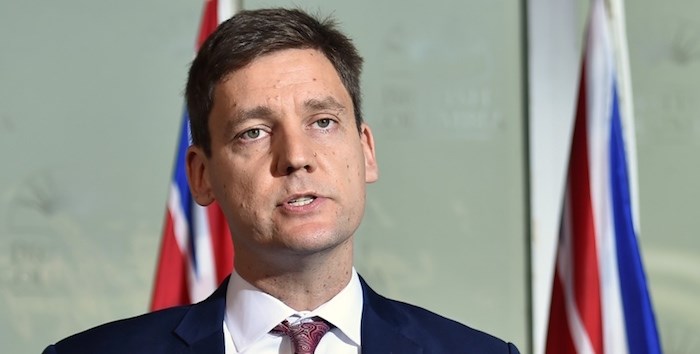Attorney General and housing minister David Eby, a frontrunner to replace Premier John Horgan, announced a major late Friday firing of BC Housing board members.
In a statement issued at 6:35 p.m. Friday evening, Minister Responsible for Housing David Eby said the BC will immediately put into effect the new board – which features new members Allan Seckel (chair), Jill Kot, Sheila Taylor, Mark Sieben and Russ Jones.
Seckel was a Deputy Minister in the Office of the Premier and Deputy Attorney General under the BC Liberals. Sieben is a Deputy Minister in Horgan’s office and Russ Jones is a former acting Auditor General. Taylor and Kot are both former Deputy Ministers.
Seckel, Kot and Taylor were originally slated to begin their tenure on July 18 – as announced on June 30 when the province released the result of a year-long external review of BC Housing on its ability to “deliver its expanded budget and mandate in consideration of government’s historic $7-billion investment in affordable housing over 10 years and the rapid growth of the Crown corporation.”
Sieben and Jones were not mentioned in the June 30 announcement, which then included two other new board members: Lawyer and former Snuneymuxw First Nation chief Douglas White and First Nations LNG Alliance vice-chair and former Gitxaala Nation chief councillor Clifford White. They will officially join the board on July 18.
It is unclear why Eby put the appointment of the new board immediately into effect, more than a week ahead of schedule. The provincial statement released Friday evening only mentioned that the new board “will continue overseeing governance of the organization and will ensure the implementation of best practices in view of the recently released external review conducted by Ernst & Young.”
Seckel replaces Cassie Doyle, who had been chair of BC Housing since 2017. Other board members being replaced immediately include Barb Carle-Thiesson (appointed 2018), Joanne Granek (2019), Penny Gurstein (2018), Kerry Pateman (2020), Susan Russell-Csanyi (2021), Sonia Sahota (2020) and Perry Staniscia (2018). All were named to their posts during the NDP government under premier John Horgan rose to power in 2017 and were slated to have their term end by 2023 or 2024 prior to Friday’s announcement.
Doyle was one of the first appointments the NDP made the day after Horgan was sworn-in on July 18, 2017. The news release on June 30 said Doyle did not seek reappointment, but did not include standard well-wishing language for a departing chair.
The Ernst & Young report said BC Housing suffers a siloed approach to delivery, has made limited investments in IT infrastructure and resources, and its project administration is largely undocumented and does not include a risk-based approach. It described a perfect storm of increased homelessness and encampments along with demands to house mentally ill and addicted clients amid a competitive job market.
The external review, which was initiated in 2021, noted 26 findings and 44 recommendations across issues such as governance, strategic planning, program design and administration.
“Project administration processes are largely undocumented and do not apply a risk-based approach,” the report said. “In some instances, subjective evaluation can be better documented. There is an opportunity to enhance risk mitigation to create additional capacity within the organization through implementation of the recommendations outlined within this report.
“... Systems are not meeting the needs of the functional areas and there is no formalized data governance in place, limiting BC Housing’s ability to optimize technology and increasing effort to perform analysis and create reports,” the report concluded. “BC Housing delivers 80-85% of services through non-profit housing providers and current oversight processes for these providers are manual in nature with limited ability to objectively assess provider performance [financial and non-financial] and manage overall risk.”
BC Housing’s budget grew from $782 million in 2017-2018, the first year of the NDP government, to $1.9 billion in 2020-2021. The NDP committed to $7 billion more over 10 years and expanded borrowing power from $165 million to $2.8 billion.



